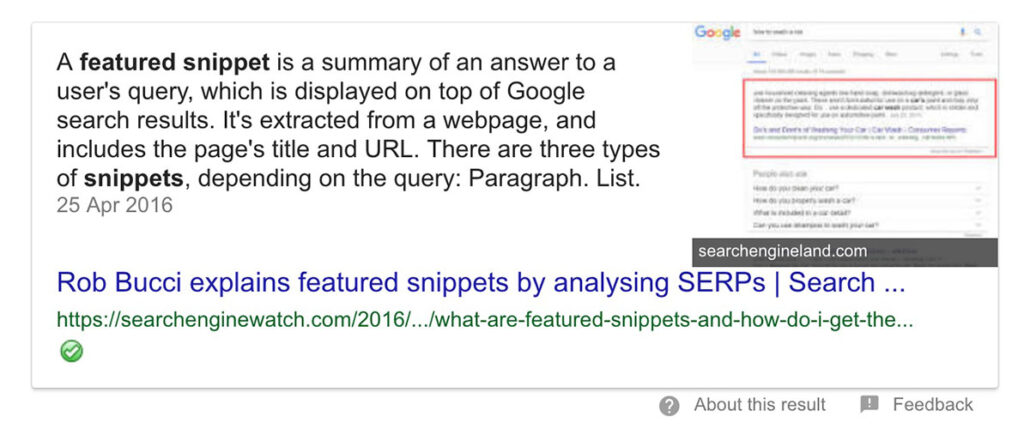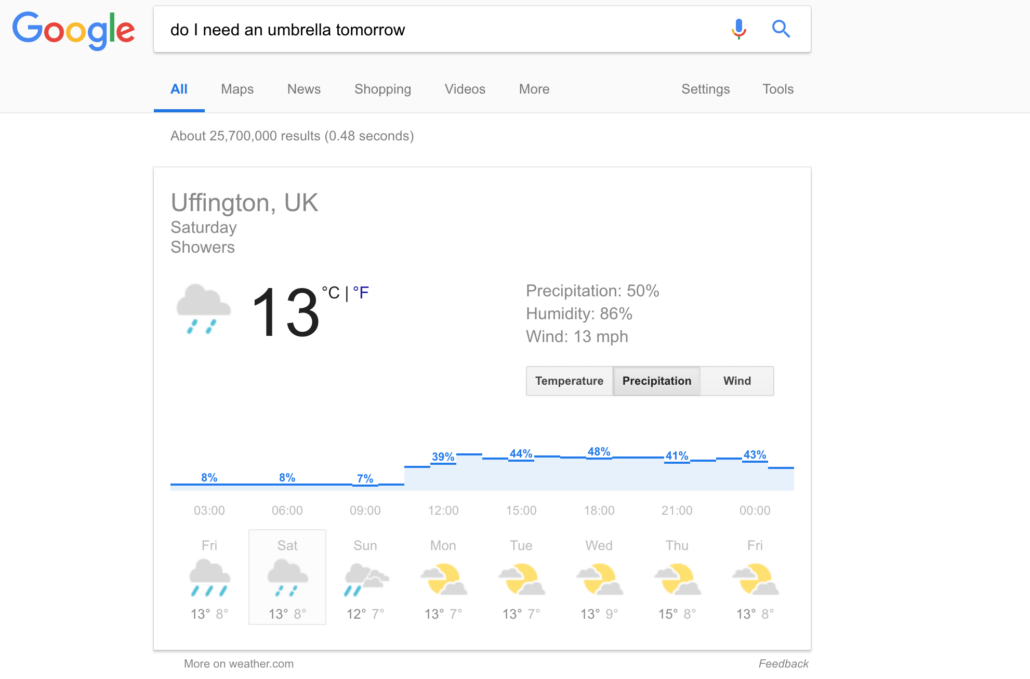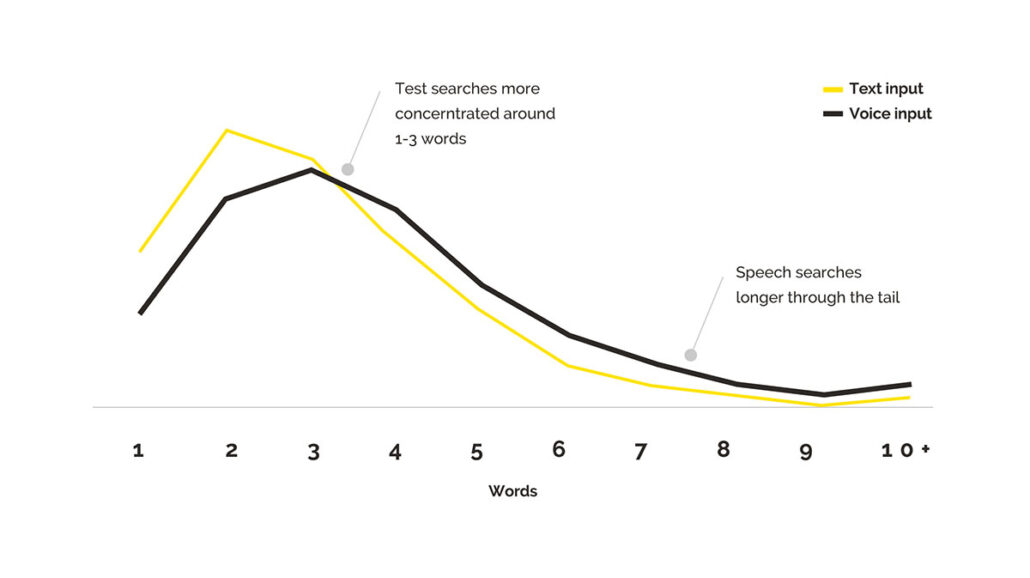How will voice impact SEO?
Brands need to focus efforts on being useful. Answering common queries will ensure they come out on top in voice search.
It would be tempting to think that voice search will only have a marginal impact on SEO because it is just people speaking questions instead of typing. Nothing could be further from the truth.
Voice is a complete shift in search because of the way people say queries out loud, compared to how they type them. Additionally, the traditional screen of links is replaced by a single, spoken answer. This means being one of many links on offer is no longer enough. Brands have to be THE answer, not just an answer.
It coincides with the rise of the ‘featured snippet’, the so-called ‘position zero’ result that appears in a box at the top of organic results. It’s presented as the best and most succinct answer to a query.
It does not always apply, but this snippet is often what a voice assistant will read out as the best answer to a spoken query. It means becoming the top answer for Google is more important than ever and so understanding how voice differentiates from typed search is essential.
How is voice search different to desktop?
When people speak they tend to be more conversational so the structure of a sentence changes. This has major implications on how marketers can adapt their websites and content strategies to reflect the longer, more flowing questions people ask of Google verbally.
This more human-like ability to understand the nuances of spoken language has been developed by Google, which has made huge strides in understanding the semantics of speech. In the past, words which sound the same or have two meanings would have confused search engines, but advances in voice analysis mean Google can figure out what the user means.
The search giant can even use location data and past search history to make sure it understands users. Just a couple of years ago, Google was struggling to get it right more than four times in five. Today, that error rate is less than one in ten.
This means longer, natural searches with more flowing use of words are set to dominate. Google has even promoted its voice assistant on television adverts as understanding that ‘Do I need an umbrella tomorrow?’ is a conversational enquiry about the weather.
Voice search queries are longer than typed searches
So, search is becoming more intuitive and a lot more human. This means sentences are starting to get longer. When people type a search, it is normally around three to four words long. ‘England next rugby game’ would be a typical example. Spoken queries average out about twice as long. So, ‘Hey Google, when’s the next England rugby game?’ equates to the same query in spoken word.
There is another vital clue in that last sentence about how voice search works. Although the most common use with smart speakers, right now, is to ask for a song to be played, the next most popular use is informational queries. People want to typically know the answer to questions, store opening hours, what is on at the cinema and so on.
It means there has been a significant rise in ‘who’ ‘what’ ‘where’ ‘when’ ‘why’ and ‘how’ questions.
What does this mean for my site?
Looking around the internet it is becoming clear that publishers are starting to become more aware of voice search. Being the best answer to a question is not only vital for desktop search but it increases the chances of being the short, snappy answer read out by Alexa or Google Assistant.
A search for ‘Hey Google, when’s England’s next rugby match at Twickenham’ brings up a top result from The Telegraph alerting fans to, in this instance, a game against the All Blacks. Marketers may want to take note of the headline, which outlines the questions the paper is optimising for, the paper then gives very brief answers below.
Content marketers need to rework strategies to ensure they are, quite literally, answering the questions consumers have around their industry, so the focus can be brought to their brand and its offering.
If a single word summed up the change voice brings to search, it is ‘usefulness’. This is the overriding new direction voice brings to SEO.
Brands that are useful, that answer common queries in a quick, concise way, will stand a much better chance of doing well in the new world of voice search, where the game is now literally, winner takes all.





